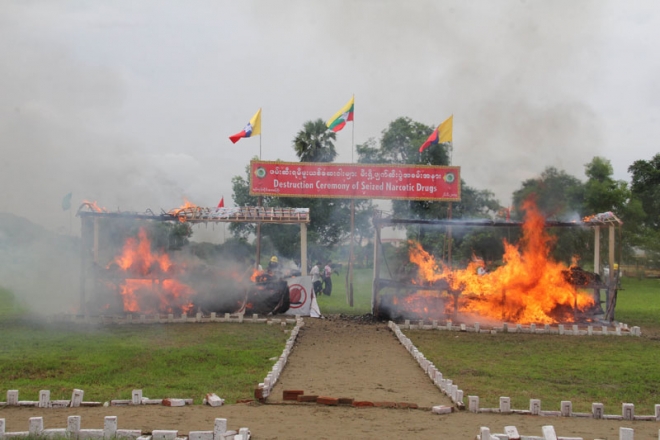The Myanmar Government and the United Nations Office on Drugs and Crime have signed a "landmark" agreement to collaborate on strengthening the rule of law and addressing significant drug and crime issues, the UN agency announced on August 18.
The agreement on an integrated country program for 2014-2017 followed a year of negotiations and was reviewed and approved by President U Thein Sein and the Cabinet, the UNODC said in a statement.

It was released in Nay Pyi Taw to mark the signing of the agreement by the Ministry of Planning and the UNODC regional representative for Southeast Asian and the Pacific, Mr Jeremy Douglas.
The UNODC said the country program comes at a critical time for Myanmar because it is the largest producer of synthetic drugs in Southeast Asia and the world's second largest opium producer.
"Criminal activity in Myanmar is undermining development efforts, increasing human insecurity and threatening the peace process," the statement said.
"By working together to improve law enforcement and criminal justice capacity, increase the availability of quality health services for drug users and offering sustainable economic alternatives for opium farmers and their families, we will be contributing to the economic and social development of the country," it quoted Mr Douglas as saying at the signing ceremony.
"Joined up with the Regional Program for Southeast Asia we will also be assisting Myanmar to engage fully with neighbouring countries," he said, adding that many criminal activities affecting Myanmar were transnational and required multi-state solutions.
The statement said the country program was built on a strong and long-standing partnership between UNODC and the Myanmar Government and had consolidated the UN agency's assistance into five sub-programs: transnational organised crime, anti-corruption, criminal justice, drugs and health and alternative development for opium poppy farmers.
It said a joint UNODC-Government of Myanmar program governance committee was being formed to ensure the program would respond to the country's evolving needs.
"We believe that the new relationship we have set in motion will contribute towards a safer and more stable community and increase the confidence of the citizens of Myanmar to look to the criminal justice system to provide stability and access to justice," Mr Douglas said.



